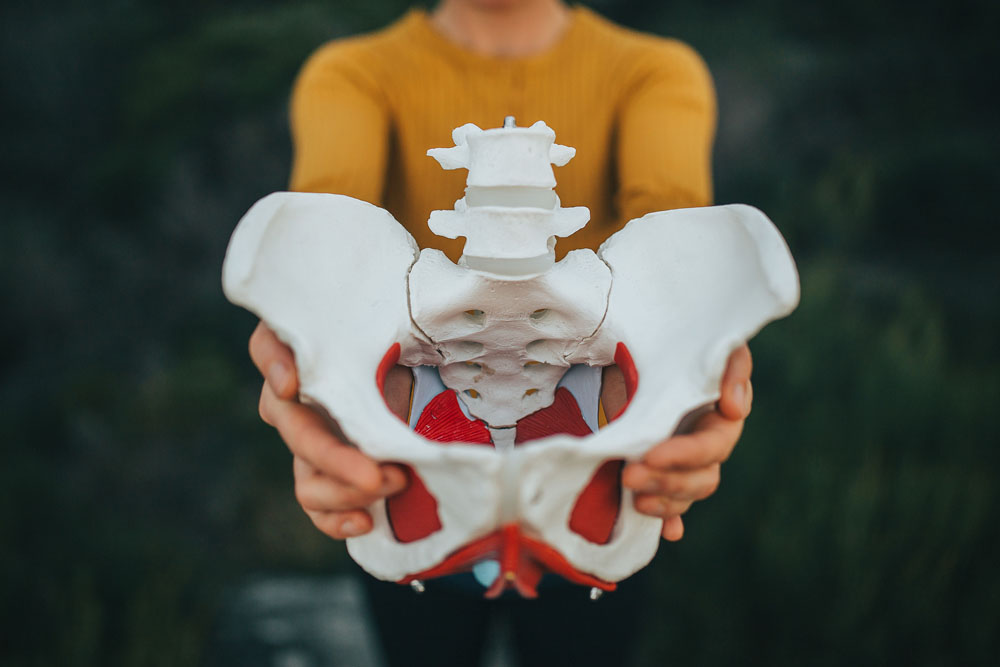Women's Health Services
What is Women’s Pelvic Health Physiotherapy?
Women’s Health Physiotherapy (or Pelvic Floor Physiotherapy) involves assessment and treatment of a variety of conditions that are related to dysfunction of the pelvic floor muscles. The pelvic floor is sometimes described like a hammock at the base of our pelvis that supports the organs (bladder, bowel, and uterus). It plays a vital role in a woman’s bladder and bowel control, childbirth and sexual function.
Pelvic floor dysfunction can occur at any age, however it is more prevalent around the transitions of pregnancy, childbirth, and menopause. Physiotherapy can help to support you through these transitions.



What Conditions can be treated?

- Incontinence (bladder and bowel)
- Urinary urgency or frequency
- Overactive bladder
- Pelvic organ prolapse
- Pelvic or genital pain
- Pregnancy related conditions
- Post-natal care including perineal tears, pelvic floor trauma and abdominal separation
- Sexual pain or dysfunction
- Certain types of constipation


Is this for me?
We understand that pelvic floor dysfunction can be a sensitive or embarrassing topic for some.
Unfortunately, pelvic floor dysfunction is also very common with symptoms of incontinence affecting 1 in 3 women and pelvic organ prolapse affecting 1 in 4 women. We recognise the negative impact of these conditions on quality of life, body image, mental, and physical health is substantial.
Pelvic floor physiotherapy techniques are research-based and have been shown in many cases to significantly improve or cure symptoms completely (1). An individual assessment can help to determine if your condition is likely to respond to physiotherapy techniques. Our holistic treatment model may also recommend support from other practitioners, specialists, or counsellors to ensure the best outcome for you.
(1) Dumoulin C, Cacciari LP, Hay‐Smith EJC. Pelvic floor muscle training versus no treatment, or inactive control treatments, for urinary incontinence in women. Cochrane Database of Systematic Reviews 2018, Issue 10. Art.No.: CD005654. DOI: 10.1002/14651858.CD005654.pub4

What to expect?
At True Balance Physio you can expect respectful, confidential, and sensitive care for many pelvic floor dysfunctions. Additionally, your physiotherapist can help you work through the barriers you
have to exercising safely and confidently with your pelvic floor condition.
Treatment is individually tailored to your condition and can include specific exercises, lifestyle
advice, biofeedback, support pessary, electrotherapy and hands-on treatment.

FAQs
Yes, we are happy to chat to you prior to your appointment. Please make an enquiry via phone or email.
- Your physiotherapist will take a detailed verbal history of your condition.
- A vaginal examination may be suggested in most cases. You are welcome to bring a support person to your appointment if you would feel more comfortable. If you are not comfortable with a vaginal examination we understand and we may still be able to help you in some way without this
assessment. - You may be asked to complete questionnaires or additional assessments like a bladder diary (a record of your fluid intake/output) at home before your next appointment.
Please wear comfortable clothing that you can move freely in.
A pelvic organ prolapse is downward movement of pelvic organs (bladder, bowel or uterus) into the vagina. Symptoms can include feeling a bulge in the vagina, sensation of heaviness/dragging, or difficulty fully emptying the bladder or bowel.
Yes, we can assess your suitability for a support pessary and provide an onsite fitting service.
- Overactive bladder is a condition that results in frequent and strong urges to pass urine. In some cases, the urinary urgency may also result in leaking.
- Bladder pain syndrome or interstitial cystitis may have similar symptoms but will also be accompanied by pain in the bladder area.
Constipation can have many causes, so it is important that you have discussed your condition with a medical professional before seeking physiotherapy. Physiotherapy can help with certain cases such as ‘Functional Constipation’ or ‘Outlet Obstruction’ where the constipation is caused by poorly coordinated or overactive pelvic floor muscles.
- Yes, we can help with some types of pelvic/genital pain. It is important that you have discussed your pain with a medical professional before seeking physiotherapy since there can be many causes for pelvic pain.
- Conditions that we may be able to help with include dyspareunia, vestibulodynia, vulvodynia, vaginismus, pudendal neuralgia, levator ani syndrome and proctalgia fugax.
Yes. There is onsite parking and wheelchair/pram access.
Please check our FAQ’s in the Physiotherapy Services section of our page for general questions. If your question was not answered here please make an enquiry via phone or email.
